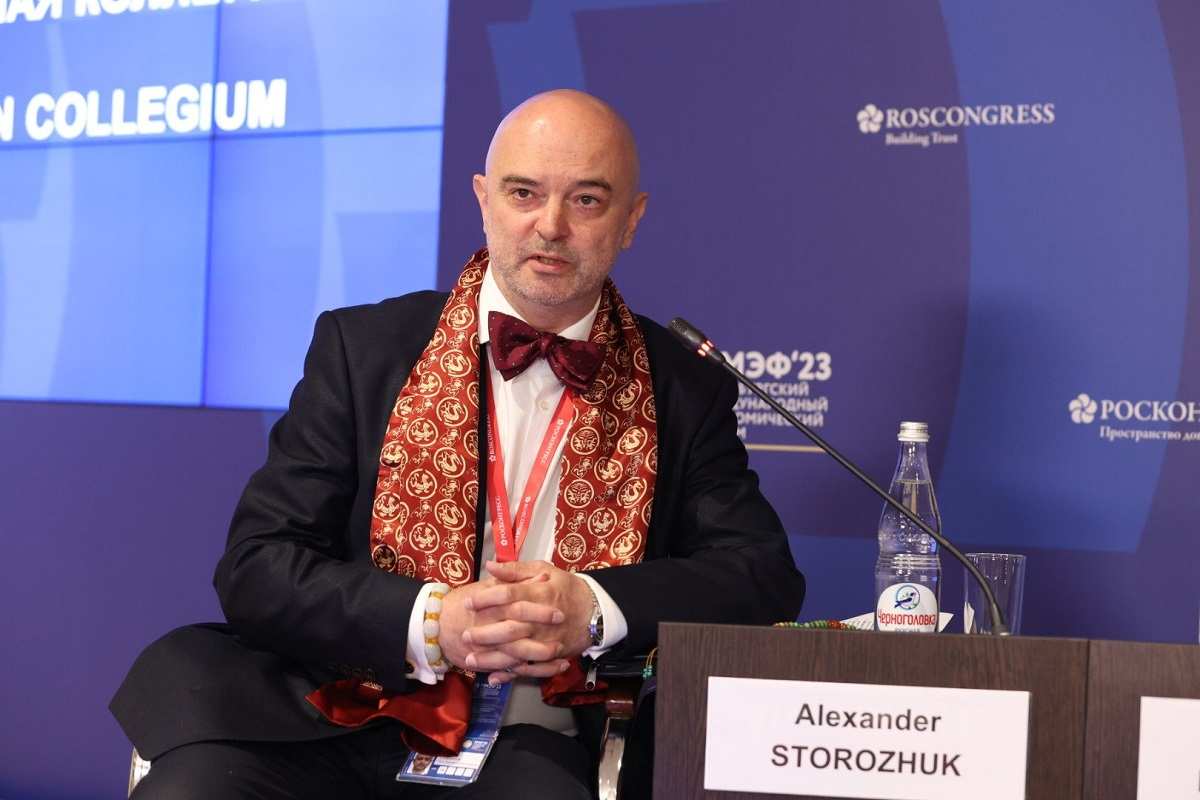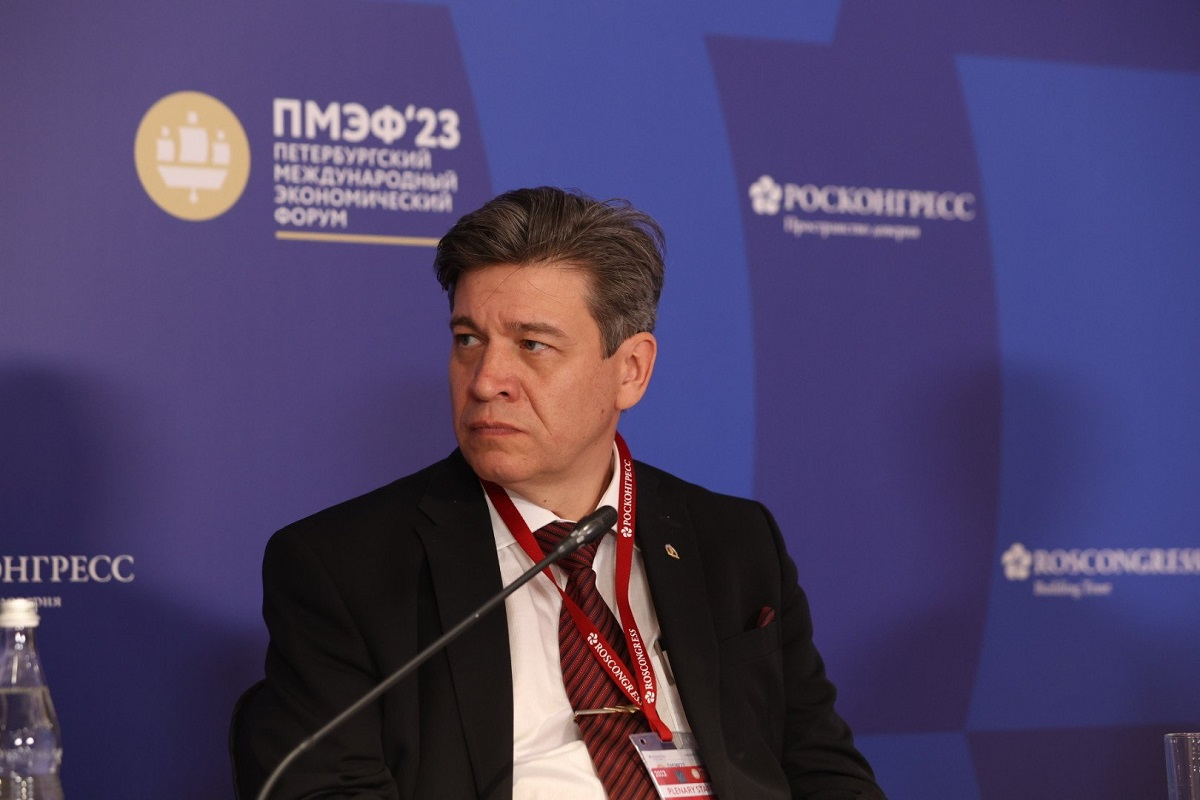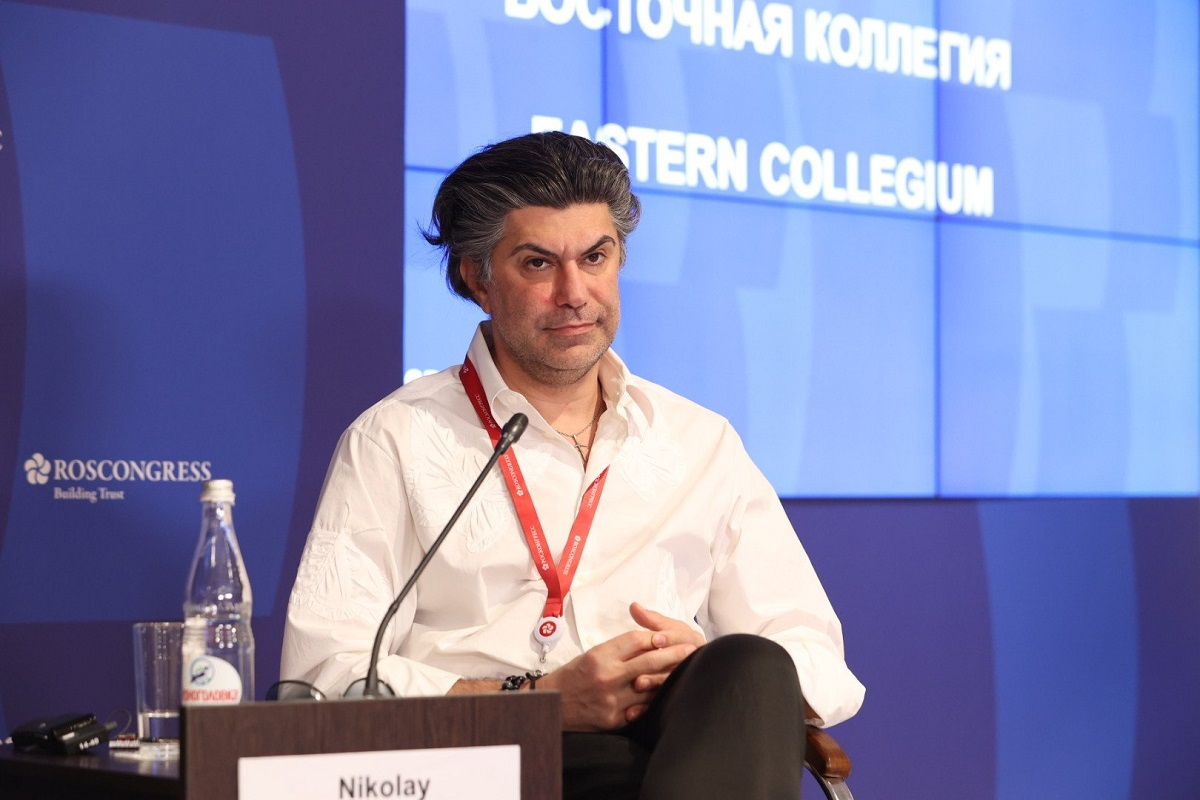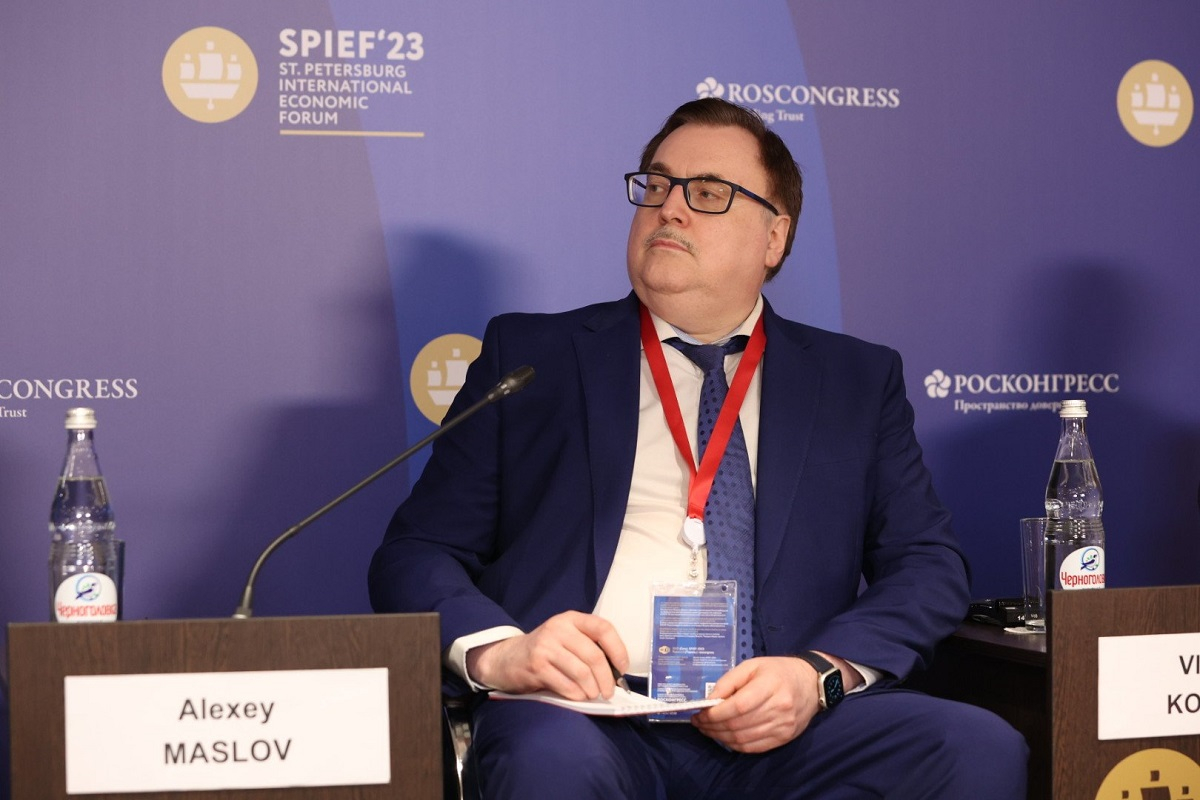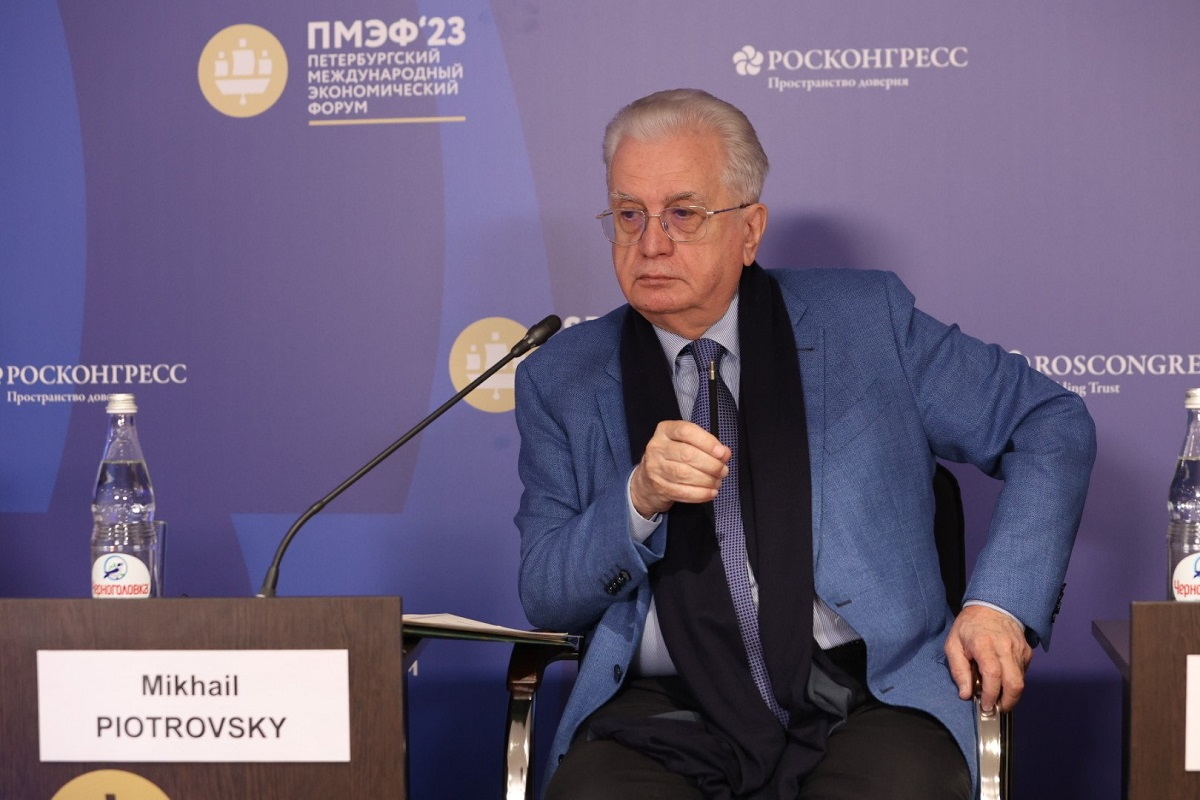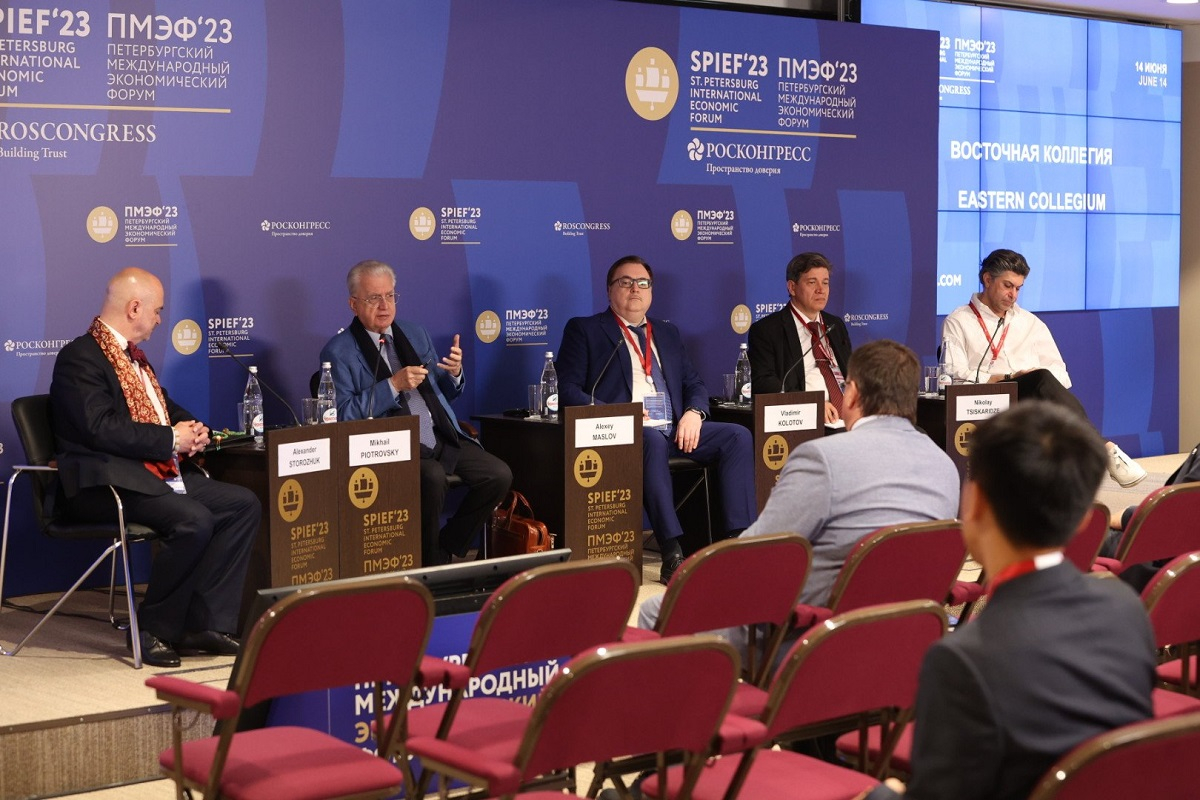"The Oriental Collegium" brings together famous scholars, diplomats and artists at the St Petersburg International Economic Forum
As part of the St Petersburg International Economic Forum 2023 (SPIEF 2023), a dialogue titled "The Oriental Collegium" took place. This meeting, planned as a permanent format, was devoted to the prospects for the development of the Russian school of thought in Oriental studies. The discussion was attended by representatives of: St Petersburg University; Lomonosov Moscow University; the Vaganova Ballet Academy; and the Russian Ministry of Foreign Affairs.
The first report was made by Professor Mikhail Piotrovsky, Dean of the Faculty of Asian and African Studies at St Petersburg University, General Director of the State Hermitage Museum, and Member of the Russian Academy of Sciences. He emphasised that our country is an integral part of the Orient. Moreover, Mikhail Piotrovsky noted that present-day technologies (in particular, translation and interpreting) create an illusion that the culture and language of other countries can be understood by any layman. Yet a deep understanding of the Oriental countries is actually based only on many years of training.
Born as encyclopaedic in the 18th century, this science, turned out to be extremely in demand in the 21st century. It is a synthetic science located at the intersection of all humanities. Through the prism of ’double optics’ it enables us to talk seriously and subtly about another world.
Professor Mikhail Piotrovsky, Dean of the Faculty of Asian and African Studies at St Petersburg University, General Director of the State Hermitage Museum, and Member of the Russian Academy of Sciences
Professor Aleksey Maslov, Director of the Institute of Asian and African Studies at Lomonosov Moscow University, drew attention to the problem that the current Oriental studies are not always able to quickly and fully respond to market demands. Under these conditions, language proficiency alone, without full-fledged training in Oriental studies disciplines, is surely insufficient. ’The first trap we get into is that the pivot to the East had occurred much earlier than professional personnel were trained,’ shared Professor Maslov. ’The second trap lies in the fact that, for particular reasons, Oriental studies had been turned inward for a long time and concentrated on many problems of the past decades. It turned out that Asia is changing faster than our knowledge about it.’ Thus, the ability to foresee how other regions will be developing in the short term and even in several decades, and therefore what and how to teach students, will predetermine the future of Oriental studies, Professor Maslov is sure. According to him, by the end of 2023, the Russian Ministry of Science and Higher Education is expected to adopt a national programme to support Asian and African studies. This implies the creation of a network of expert and analytical centres in all regions of Russia to work with Asian and African countries and train qualified personnel.
On the eve of the "Oriental Collegium" dialogue, a round table discussion was held. It was devoted to the traditions and prospects for the development of Russian Oriental studies. The event was attended by: Sergey Naryshkin, Chairman of the Russian Historical Society; Academician Mikhail Piotrovsky, Dean of the Faculty of Asian and African Studies at St Petersburg University; Abdulla Daudov, Director of the Institute of History at St Petersburg University; Aleksey Maslov, Director of the Institute of Asian and African Studies at Lomonosov Moscow University; Irina Popova, Director of the Institute of Oriental Manuscripts of the Russian Academy of Sciences (IOM RAS); and others.
Nikolay Tsiskaridze, Rector of the Vaganova Ballet Academy, shared his look at the topic from the perspective of culture and art. Nikolay Tsiskaridze has represented Russia on all continents over the past 30 years and acted as the head of a higher education institution over the past decade. He saw how the world was changing. According to him, there is a huge need for interaction with Russia in other countries. Russia is the birthplace of classical ballet, and art and artistic education are the most powerful resource of public diplomacy for our country. Nikolay Tsiskaridze also shared some stories from his life about how knowledge of cultural, religious and historical nuances had come in handy during his world tours, particularly, in Tunisia and India.
I am very glad that the pivot to the East has taken place. This market is much larger, much richer and much more interesting. For my part, I am open to any cooperation. And as for my profession, I can say that you always feel proud when, wherever you perform, in Buenos Aires, Brasilia or Tokyo, you find confirmation everywhere that if there is a ballet school in this place, then it was founded by Russians.
Nikolay Tsiskaridze, Rector of the Vaganova Ballet Academy, People’s Artist of Russia
A graduate of Leningrad State University, Evgeny Tomikhin is Ambassador Extraordinary and Plenipotentiary of the Russian Federation to the Kingdom of Thailand, Permanent Representative of the Russian Federation to the UN Economic and Social Commission for Asia and the Pacific (ESCAP) in Bangkok. He supported the idea of creating federal Oriental studies centres and expert networks that would unite representatives of the academic community, education, diplomacy, and business. ’Historically, our country has its own full-fledged Russian school of thought in Oriental studies, with its own traditions, academic capital, practices and continuity. Undoubtedly, this is the foundation that should be relied upon in the development and improvement of educational processes,’ Evgeny Tomikhin emphasised, adding that the challenge for Russian Oriental studies is the need to scale this model while maintaining the quality of education.
Another graduate of Leningrad State University, Dmitry Birichevsky is Director of the Department of Economic Cooperation at the Russian Ministry of Foreign Affairs. He recalled the current foreign policy situation. He suggested looking at the geography of Russia-friendly countries through which economic flows are passing today. They are all in the East. ’The contribution and role of orientalists in promoting Russian interests, in particular the interests of our economic operators and our specialised departments, can hardly be overestimated,’ Dmitry Birichevsky said. ’Without knowledge and understanding of cultural aspects, traditions and customs, such instrumental skills as diplomacy or translation and interpreting can not only be ineffective, but even do harm,’ the expert emphasised.
The meeting was moderated by Professor Aleksandr Storozhuk, Head of the Department of Chinese Philology at St Petersburg University. The recording of the broadcast is available on the Forum website.
Professor Vladimir Kolotov, Head of the Department of History of the Far East Countries at St Petersburg University, said that today the development of Oriental studies is reduced to the problem of understanding one’s own identity. ’A lot was said about the need to turn to the East by various people, including those from the upper tier. Now, life is forcing us to make this turn. But in order to fill it with substantial content, professionals are needed,’ Professor Kolotov agreed, noting that orientalists should work in key positions and play a key role in establishing cooperation with the countries of the Orient.
According to Vladimir Kolotov, projects implemented with eastern countries without expertise in Oriental studies often fail. In his opinion, historically established traditional centres should be the locomotive of Russian Oriental studies. The speaker suggested checking the quality of orientalists’ training with a "stress test", through simultaneous interpreting at such large forums as St Petersburg International Economic Forum. As practice shows, retraining specialists is much more difficult than training a new one. ’If life forces us to make a pivot to the East, we need to do it correctly, by relying on traditional centres of Oriental studies and organising a separate group of scientific specialties titled ’Asian and African Studies’. Only in this case it is possible to obtain a reliable relevant result,’ concluded Vladimir Kolotov.
At the end of the event, an open discussion took place. Thus, Professor Irina Popova, Director of the Institute of Oriental Manuscripts of the Russian Academy of Sciences, drew attention to the importance of preserving and supporting rare professions, including those devoted to the study of ancient languages. Professor Popova emphasised that teaching, for example, the ancient Chinese language at St Petersburg University is valuable for St Petersburg and Russian sinology. She noted that the Orient as a whole is very traditional, therefore, without knowledge of its antiquity, it is extremely difficult to understand modern countries of the East.
Professor Maslov recalled the need to pay special attention not only to higher education, but also to school education from the perspective of teaching Oriental studies. ’Starting from school, we were psychologically preparing for our interaction with the West,’ he said. ’This will not work with the East. It needs to be studied separately. But neither four nor six years is enough for this, because since school we are imprisoned by another, Western, "matrix".’ According to Professor Maslov, the solution to this problem is the implementation of Oriental studies courses as part of school curricula. He also shared his experience of introducing the once unpopular African languages at four schools in Moscow, which helped to increase interest in African studies as a university-based field of study.
Summing up, Professor Storozhuk highlighted the need to single out Oriental studies as a separate scientific specialty and include it in the national priorities for the development of science.


